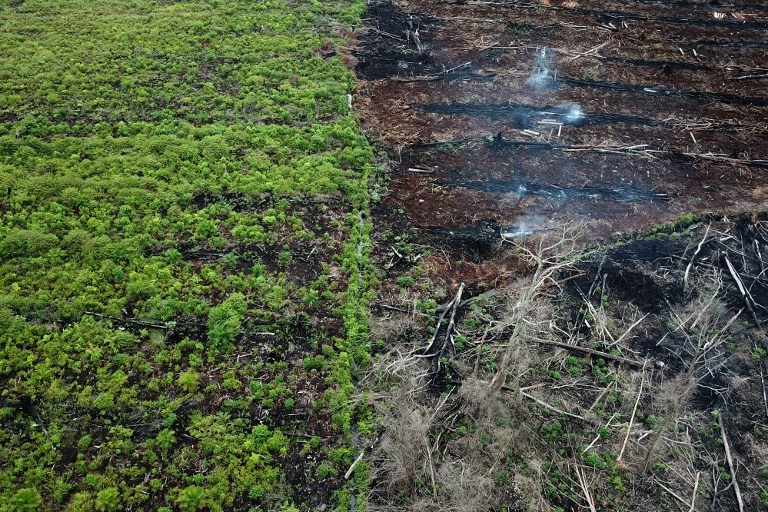Popular Reads
Top Results
Can't find what you're looking for?
View all search resultsPopular Reads
Top Results
Can't find what you're looking for?
View all search resultsNo more new plantations in protected forests, rules Supreme Court
The Supreme Court has ruled against an article in a government regulation that allows land to be cleared for new plantations in protected forests and conservation areas.
Change text size
Gift Premium Articles
to Anyone
T
he country has been losing its forests to plantation companies for years, with a large chunk of Indonesian rainforests across the archipelago converted into plantations of all kinds.
Environmentalists have been lambasting President Joko “Jokowi” Widodo on the issue, especially for issuing a government regulation in 2015 that allowed existing plantations to continue operating in designated conservation areas and protected forests. Activists claimed that the regulation would exacerbate the problem, which prompted them to challenge it in court.
The Supreme Court has decided to stand with the environmentalists on the issue. Its justices ruled in favor of the activists in early December, and ordered the government to annul an article in the regulation that allows plantation companies to continue operating in protected conservation areas and forests.
Presided by chief justice Irfan Fachruddin, the Supreme Court judicial panel issued the ruling in favor of Walhi on Dec. 13. and announced on its website that it had ruled in favor of the petition for judicial review filed by the Indonesian Forum for the Environment (Walhi) against Government Regulation No. 104/2015 on forest area conversion.
The environmental organization challenged point (2) of Article 51 in the regulation, which allows plantation owners to continue cultivating land in protected forests or conservation areas for one planting cycle. The provision only applies to plantation owners that have secured permits to clear a new plantation in accordance with regional spatial plans.
Walhi argued that the provision would destroy the habitats of many endemic flora and fauna and increase the risk of future disasters due to forest loss. The group added that the article would also harm the local people and benefit investors, especially those investing in oil palm plantations.
However, the court has yet to issue an official copy of the ruling to the public, nor has it sent a copy of the ruling to either the plaintiff or the defendant.


















